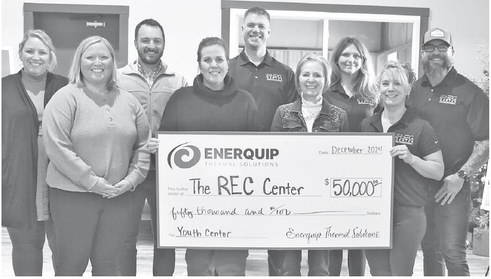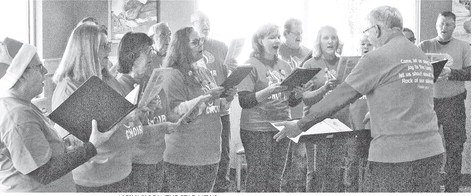City council learns about wastewater testing process
Medford Wastewater treatment plant lab director Brook Klingbeil traded her petri dishes for a Powerpoint presentation Tuesday night as she presented to the city council on a change in how testing is done.
Due to permitting changes, the city is required to test for the presence of E. coli in effluent rather than fecal coliform as it has done in the past. The bacteria can result in severe illness and the city is required to test the water leaving the plant for it during the warmer months of the year to prevent recreational users of the Black River from potentially becoming ill. The city made the switch to the new testing procedures on July 5.
Klingbeil is scheduled to give the same presentation before two state conventions, Wisconsin Rural Waters state meeting at the end of the month and at the Wisconsin Wastewater Operations Association meeting later in the fall. Tuesday’s presentation was to inform the council of the testing changes at the plant while also serving as a practice run for the upcoming presentations.
According to Klingbeil, the change was the result in changes at the EPA and at the Department of Natural Resources looking at E. coli as having a more direct link to causing illness in people. The city is required under its permit to do weekly tests for E. coli from May through October. Given its size and location near the headwaters of the Black River, Medford has long been held to a higher standard than many other wastewater treatment plants around the state.
In addition to doing its own testing, the Medford plant also does testing for five other nearby wastewater treatment plants as well as doing drinking water quality testing for local contractors and the city. The fees the city collects from services to other municipalities and businesses helps offset the testing costs and allows the city to be at the forefront.
Because of her knowledge and experience in doing drinking water testing in addition to the wastewater testing, Klingbeil serves as a resource for plant operators from around the region who have questions.
“The DNR uses me a lot,” Klingbeil said, noting that wastewater treatment plant superintendent Ben Brooks had laid the groundwork by having a lab that is in “tip top shape.”
“We seem to be out in front on a lot of stuff,” said alderman Mike Bub, noting that the city routinely receives perfect scores on their annual plant evaluations and has adapted to changing regulations well.
“We are a leader,” Brooks said, noting the city’s flows of a million gallons a day put it at a mid-size plant and that they have had to routinely work to higher standards since they discharge into what is considered a major water body.
Medford also has a history of being innovative. “We are way ahead of the game than others,” he said.
In other business, aldermen:
_ Approved a $49,805 bid from American Asphalt to resurface South Whelen Avenue. The road will remain open through the project with approximately 1.5 inches of surfacing to be milled off and replaced. The project is expected to be done by the end of September.
_ Approved submitting the yearly application for the shared ride taxi grant.
_ Approved submitting the application for a WEDC grant for the redevelopment of a city-owned property in the downtown. This is in partnership with private developers in the community.
_ Approved keeping the Hotel/Motel Room Tax split as 85% going to room tax grants and 15% going to the city. State law allows the city to keep up to 30% of the room taxes collected, but the city has chosen to put more of the money toward promoting tourism activities.
_ Approved terminating a payment in line of taxes agreement with Nestlé for the proposed Dog Park property as the group forming the park moves forward in getting nonprofit status.



